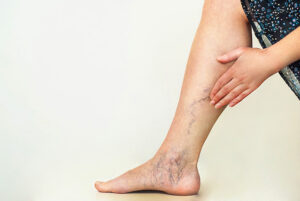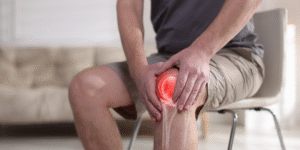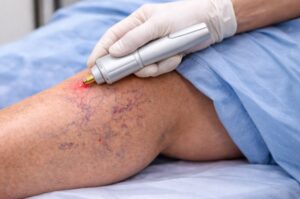Many people experience clicking sounds from their knees, especially when walking, squatting, or climbing stairs. Often, these sounds are harmless and occur due to the natural movement of tendons, ligaments, or joints. However, persistent clicking or discomfort in your knee could be a sign of something more serious, such as a meniscus tear.
What Is the Meniscus?
The meniscus is a C-shaped piece of cartilage in your knee that acts as a cushion between your thighbone (femur) and shinbone (tibia). Each knee has two menisci—one on the outer edge (lateral meniscus) and one on the inner edge (medial meniscus). The menisci absorb shock and stabilize the knee, allowing smooth movement during daily activities.

What Is a Meniscus Tear?
A meniscus tear is a common knee injury, particularly among athletes, older adults, and people who perform repetitive knee motions. The tear can occur due to sudden twisting or turning of the knee, especially while the foot is planted on the ground. Over time, degeneration of the cartilage can also cause a meniscus tear, especially in older adults.
Why Does My Knee Click?
A meniscus tear can cause a variety of symptoms, including pain, swelling, and the sensation of your knee locking or giving way. Clicking or popping sounds are another hallmark symptom. Here’s why this happens:
- Fragmented Meniscus Cartilage: When the meniscus is torn, loose fragments of cartilage may get caught in the knee joint. This can cause a clicking or popping sound as you move the joint.
- Joint Instability: A torn meniscus can make your knee less stable. As the knee moves through its range of motion, the instability may cause clicking, particularly when you squat, stand, or pivot.
- Reduced Shock Absorption: The meniscus plays a crucial role in cushioning the knee. When it is damaged, the uneven forces applied to the knee can create noise as the bones and cartilage move against each other abnormally.
Symptoms of a Meniscus Tear
If your knee is clicking, and you’re concerned it might be a meniscus tear, pay attention to other symptoms:
- Pain: Especially along the joint line where the meniscus sits.
- Swelling: Often appearing a day or two after the injury.
- Locking or Catching: You may feel as though your knee is catching or locking, making it difficult to fully straighten or bend your knee.
- Difficulty Moving: You may feel that your knee is stiff, weak, or unable to bear your weight.
Diagnosis
If you experience persistent knee clicking along with pain or other symptoms, a healthcare professional can assess your knee. Diagnosis usually involves:
- Physical Examination: Your doctor may perform certain tests, like the McMurray test, where they manipulate your knee to check for meniscus damage.
- Imaging Tests: X-rays or MRI scans can help confirm whether a meniscus tear or another condition (like osteoarthritis) is causing your symptoms.
Treatment Options
Treatment for a meniscus tear depends on the severity of the injury and your activity level. Common treatments include:
- Rest, Ice, Compression, and Elevation (RICE): These first-aid measures can help reduce pain and swelling.
- Physical Therapy: Strengthening the muscles around your knee can help improve stability and reduce symptoms.
- Medications: Anti-inflammatory medications can relieve pain and swelling.
- Surgery: In more severe cases, arthroscopic surgery may be necessary to repair or remove damaged parts of the meniscus.
Preventing Further Injury
To avoid worsening a meniscus tear or developing future injuries, consider the following:
- Strengthen Your Knee Muscles: Exercises targeting the quadriceps, hamstrings, and calves can help support the knee.
- Maintain Flexibility: Stretching before and after physical activities can keep the knee joints limber.
- Use Proper Technique: Whether you’re lifting heavy objects or engaging in sports, using proper form can prevent sudden knee twists or strains.
When to Seek Medical Attention
If your knee is consistently clicking and you experience additional symptoms such as swelling, pain, or difficulty moving your knee, it’s essential to seek medical attention. A meniscus tear, if untreated, can lead to long-term complications like chronic knee pain, arthritis, or reduced mobility.
Conclusion
A clicking knee might seem like a minor annoyance, but if it’s accompanied by other symptoms, it could indicate a meniscus tear. Early diagnosis and treatment can prevent further damage and get you back to your normal activities. If you’re concerned, consult with a healthcare professional to assess your knee and recommend the right course of action.







